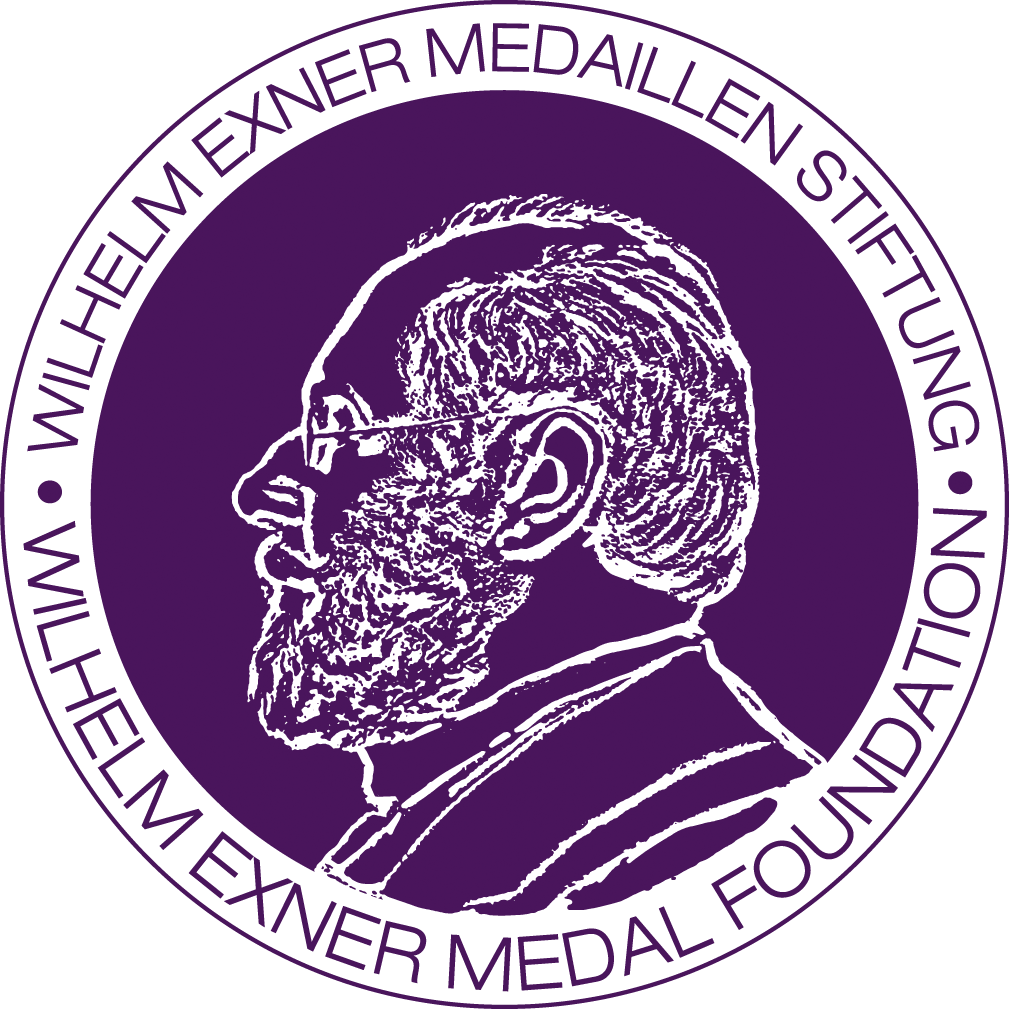The Wilhelm Exner Medals of 2021 could only be awarded in May 2022…
- Lectures 2024 | Guilio Superti-Furga
- Lectures 2024 | Ferdi Schüth
- Lectures 2023 | Omar Yaghi
- Lectures 2023 | Thuc-Quyen Nguyen
- Lectures 2023 | Daniel Anderson
- Lectures 2021 | Katalin Kariko
- Lectures 2021 | Luisa Torsi
- Lectures 2020 | Edward Boyden
- Lectures 2019 | Joseph DeSimone
- Lectures 2018
- Lectures 2017
- Lectures 2016
- Lectures 2015 | Gregory Winter

Katalin Karikó
Developing mRNA for therapy
The idea of creating a vaccine with messenger RNA, or mRNA, the substance that help to convert DNA into proteins, goes back decades. However, early efforts to use synthetic mRNA for treating or preventing various diseases failed due to the inflammatory nature of such mRNA. While working at the University of Pennsylvania Medical School, Katalin Karikó found that transfer RNAs known to contain many modified nucleosides were non-immunogenic, when delivered into immune cells, thus suggesting that modified nucleosides might suppressing the immunogenicity of the RNA. The seminal work by Karikó and colleagues revealed that one of the four building blocks of RNA, the uridine was responsible for triggering inflammation in mice. Using modified nucleotides, she synthesized protein-encoding long mRNAs containing modified nucleosides, including pseudouridine. She found that mRNA containing pseudouridines were non-inflammatory, didn’t activate the RNA-sensing receptors located in the endosomes of human immune cells. Most importantly, the pseudouridine-containing mRNA translated into the encoded protein very efficiently. They demonstrated that modified mRNA encoding erythropoietin was functional in vivo and increased the hematocrit in mice, opening the potential to use the mRNA for the treatment of anemia and other medical use. Together with her colleagues at the University, they used modified mRNA formulated with LNP as vaccine and protected mice and macaques against a variety of viruses. Nucleoside-modified mRNA were successfully used to create the anti-SARS-CoV-2 mRNA vaccines by BioNTech/Pfizer and Moderna/NIH, and both approved for human use. The legacy of the Wilhelm Exner award is to honor scientists whose work has demonstrated significant outcomes for the betterment of humankind, for society and businesses. The novel mRNA platform not only accelerate development of new vaccines and other drugs, but makes all the mRNA-based medicine more affordable since using the human body to generate their own medicine.
Co-Lectures
Guido Wollmann, University of Medicine, Innsbruck
Vaccines against cancer – the next frontier
The immune system excels at distinguishing foreign pathogens from self-tissue, enabling potent responses to infections, which is used in preventive vaccinations. However, directing this principle against cancer—where malignant cells originate from the body’s own tissue—poses a unique challenge. Effective cancer vaccines require tumor-specific antigens that are immunologically distinct, yet such antigens are often patient-specific mutations, while shared tumor antigens tend to be weakly immunogenic. Over the past three decades, diverse vaccine platforms—including viral vectors, DNA, RNA, proteins, and peptides—have been optimized to deliver tumor antigens. Among these, the mRNA platform stands out for its unmatched flexibility and rapid turnaround from tumor biopsy to treatment in individual patients. This lecture will review the evolution of cancer vaccine development, highlight recent breakthroughs, and address the remaining obstacles in harnessing immunotherapy to combat tumors.
Michael Kundi, University of Medicine, Vienna
mRNA vaccines against COVID-19, the story of a success in fighting the pandemic
In December 2019, a pneumonia outbreak of unknown origin emerged in Wuhan, China. Within two years, the causative virus, SARS-CoV-2, infected nearly 250 million people and caused over 5 million deaths globally. Remarkably, by late 2020, over 7 billion COVID-19 vaccine doses had been administered worldwide. This rapid response was enabled by the virus’s genetic sequence becoming publicly available in January 2020, allowing developers to leverage existing platforms—particularly mRNA technology—to initiate vaccine production within a month. Clinical trials involving tens of thousands of participants led to conditional or emergency use authorizations in late 2020, with mRNA vaccines demonstrating approximately 95% efficacy against symptomatic infection and even higher protection against severe disease. The success of these vaccines, which accounted for over 80% of doses in the EU and nearly all in some countries, was founded on Katalin Karikó’s pioneering work on N1-methylpseudouridine-modified mRNA, which enhanced stability and reduced inflammatory responses. While efficacy has slightly declined due to viral mutations, updated vaccines can be developed in weeks using new sequence data. In Austria alone, vaccinations prevented over 12,000 hospitalizations and 2,000 deaths due to COVID-19 in the first six months. To sustain progress, global collaboration and continuous access to high-quality vaccines remain essential.


